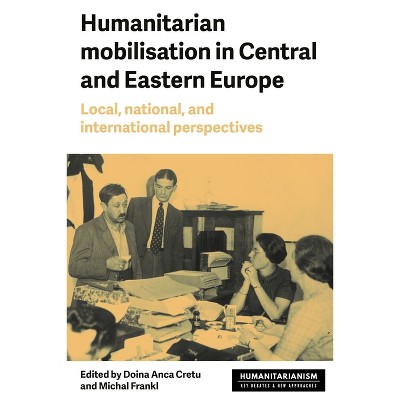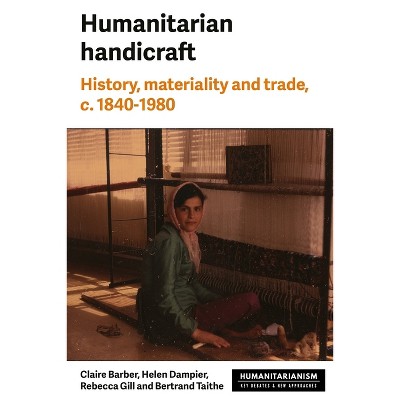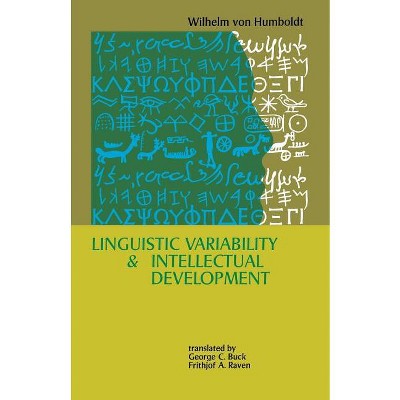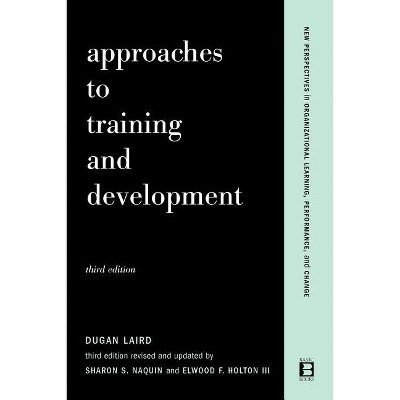Formulating Development - (Humanitarianism: Key Debates and New Approaches) by Lola Wilhelm (Hardcover)

About this item
Highlights
- In the 1970s, Nestlé became a lightning rod for criticism against the food industry's negative impacts on humans and their environment, especially in the Global South.
- About the Author: Lola Wilhelm is Lecturer in the History of Medicine at the University of Zurich
- 288 Pages
- Political Science, Globalization
- Series Name: Humanitarianism: Key Debates and New Approaches
Description
About the Book
From the Alpine pastureland of late nineteenth century Switzerland to the hospitals of post-independence West Africa, Nestlé and the shaping of the aid industry tells the story of how Nestlé earned a seat at the table of international aid, and uncovers the long-forgotten alliances and controversies that continue to shape the aid industry today.Book Synopsis
In the 1970s, Nestlé became a lightning rod for criticism against the food industry's negative impacts on humans and their environment, especially in the Global South. But what has so far eluded historical scrutiny is that the picture was more nuanced.
This book tells the exclusive story of how the Swiss food giant, and more broadly corporate capitalism, have shaped the aid industry since the late nineteenth century. It follows Nestlé's bid for a share of the humanitarian market brokered by the Red Cross in wartime Europe, of its clinical trials in Swiss and Senegalese maternities, and of its agricultural modernisation schemes in Mexico, India, and the Ivory Coast.
Based on extensive research in the firm's own historical archives and the records of national and international aid agencies, the volume interrogates the legacies of this long history for international development today.
From the Back Cover
From an international boycott in the 1970s to current medical warnings against ultra-processed foods and their suspected role in the global obesity crisis, Nestlé has come under intense public scrutiny. For its critics, the Swiss giant epitomises the negative impacts of the food industry on development and the Global South. What has so far eluded historical inquiry is how, from its creation in 1866 through much of the twentieth century, Nestlé shaped, and was shaped by, the ideas and practices of international development.
In Formulating development: How Nestlé shaped the aid industry, historian Lola Wilhelm takes the reader from the Alpine valleys of nineteenth century Switzerland to the hospitals of post-independence West Africa. She finds that Nestlé earned a seat at the table of international aid by partnering respected institutions, Save the Children and the United Nations Food and Agriculture Organisation.The book tells how Nestlé's humanitarian ventures brokered the Red Cross in wartime Europe, of its clinical trials in Helvetic and Senegalese maternities, and of its agricultural modernisation schemes in Switzerland, Mexico, India, and the Ivory Coast. But these corporate manoeuvres were never to everyone's taste. Against the backdrop of war and the downfall of Europe's colonial empires, the volume uncovers the long-forgotten alliances and controversies that continue to shape the aid industry.
Based on extensive research from Nestlé's archives, the records of leading aid agencies, and the experiences of hospital patients and purported aid recipients, this book interrogates the legacies of this history for international development today.
About the Author
Lola Wilhelm is Lecturer in the History of Medicine at the University of ZurichShipping details
Return details
Trending Non-Fiction











